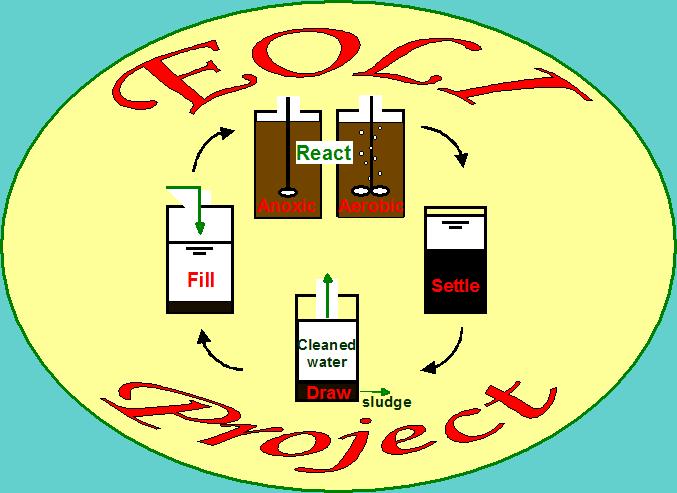
Coordination: CESAME, UCL, Belgium
Scope of the EOLI Project
General objectives of the research
The objective of the EOLI project is to design a low-cost, modular and reliable monitoring and control system for wastewater treatment process dedicated to the treatment of wastewater from urban settlements, especially from those urbanized areas where industries contribute heavily to water pollution. In this project, three types of wastewater will be considered. The first one coming from a dairy industry, contaminated with organic carbon components as well as nitrogen, the second typical for an area including chemical industry, containing toxic or recalcitrant compounds, the third one a domestic wastewater which occasionally contains toxic or organic overloads. The aerobic treatment of domestic and industrial wastewaters by activated sludge is a common process, but the characteristics of many industrial discharges often cause operational problems in continuous flow systems. Therefore, discontinuous processes, as sequencing batch reactors (SBRs), will be considered in this project because, in terms of investment and operation costs, process stability, and operation reliability, they are better than the conventional continuous activated sludge process.
The monitoring and control system, relying upon information technologies and automatic control, is designed to provide a tool for reliable and efficient operation of SBRs. It will also provide a framework for the ISO14001 certification and allow small and medium units (mainly SMEs, not only in Latin America but also in Europe, that cannot afford high investment processes for wastewater treatment) to meet the pollution constraints (like the Europ. Directives 91/271/EEC and 98/15/EEC).
The EOLI project is aiming at developing a general, yet adaptable, supervision and monitoring system for the types of wastewater described above. The framework of the EOLI project will integrate the data collected by the sensors, detect fault or abnormal working conditions, and activate model-based controllers to optimise the technology and operation of SBRs. The efficient, low-cost and safe operation of the SBRs will be achieved by the integration of high performance controllers, affordable hardware and software sensors and a supervision system to guarantee the reliability of the process operation. It is of particular concern that the proposed control is based on a relatively simple and low-cost system.
Specific scientific and technological objectives
The EOLI project proposes a set of customisable tools for SBRs in order to improve the quality of their depollution process and to reduce the treatment costs.
· The EOLI solution will be developed to fit a general case, even if in this project will be applied for the specific problems. It guarantees a customised depollution system to SMEs i.e. characterised by a low cost, plug and play installation and easily portable architecture. This requires to develop a flexible and modular solution that will ensure that the supervision system adapts both to the wide process variety (plant, sensors, actuators) and to the owner requirements (objectives, budget,...).
One of the difficult tasks in operating any biological activated sludge process lies in the monitoring of the biomass concentration due to possible settling problems of the suspended solids. For some effluents such as those discharged by the food and the chemical industry, this remains a problem even when using an SBR. Thus, an additional objective of the EOLI project is to provide a new control strategy in controlling the sludge level at the end of each time cycle.
An important aspect of the EOLI project is the transfer of scientific and technical knowledge and the training of human resources, particularly of young researchers, both in the university laboratories and the industrial companies associated to the project.

See the EOLI technical annexes for more details (reserved for member only).
